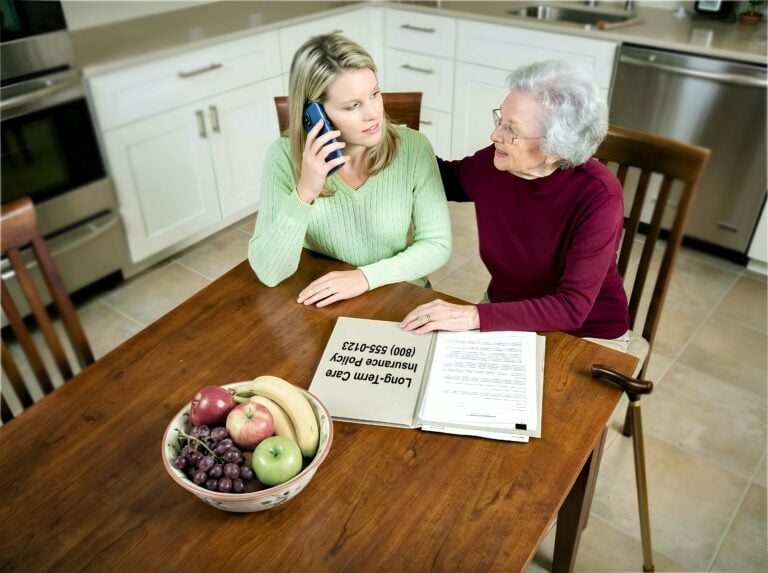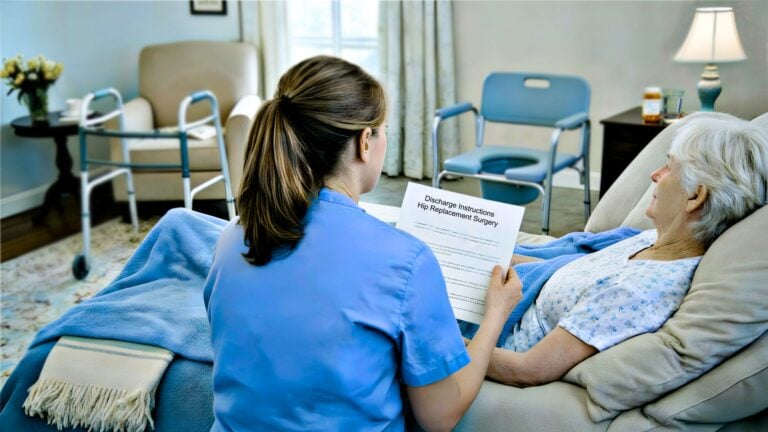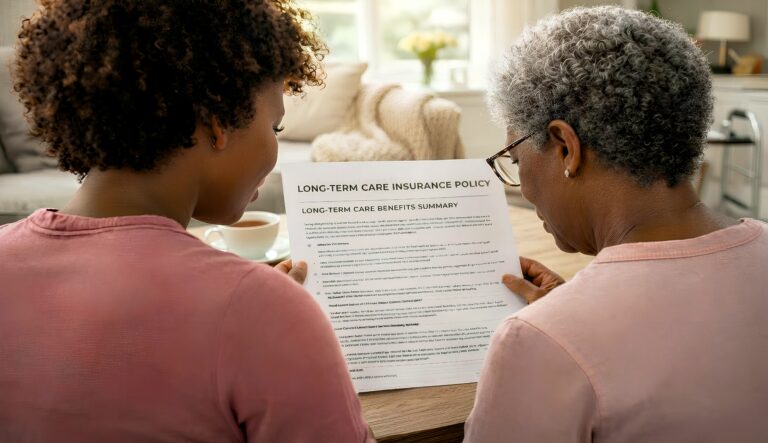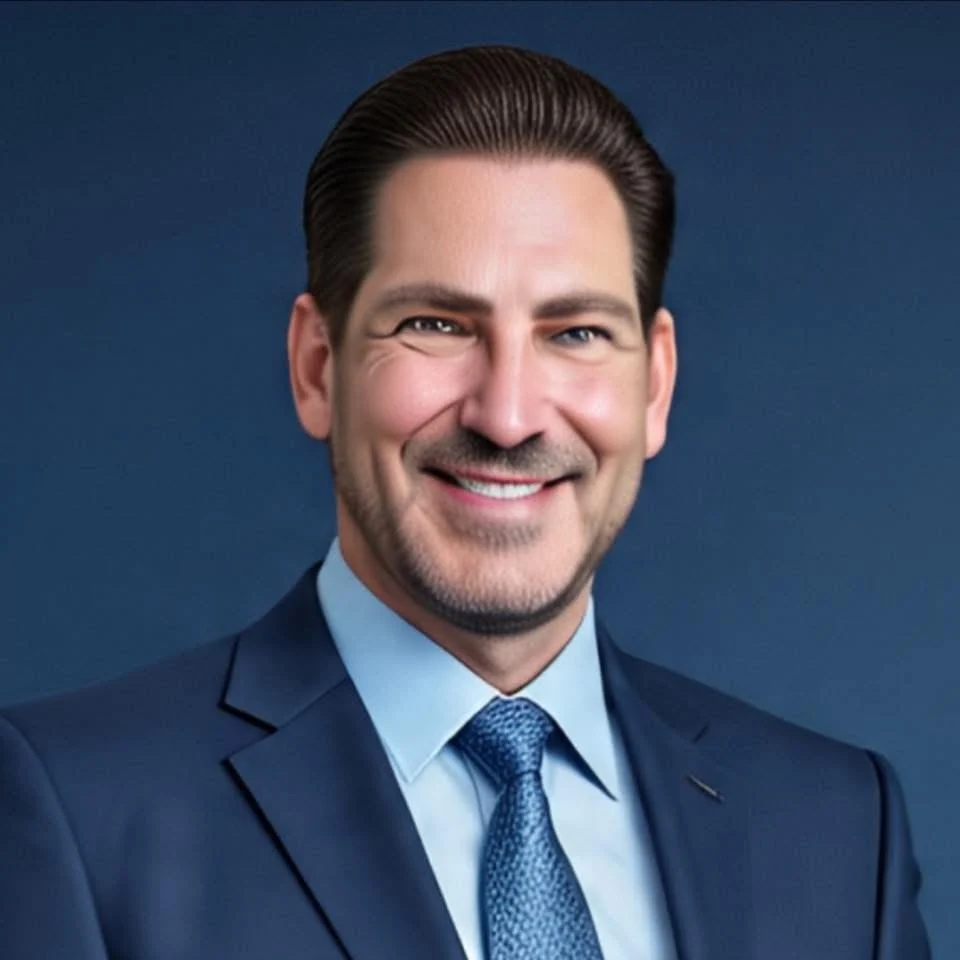Working as a caregiver can be one of life’s most rewarding roles. You get to spend meaningful time with someone you care about while providing them with the attention and support they need.
But caregiving is also relentlessly demanding — physically exhausting, emotionally draining, and often involving long hours with little recognition or respite.
The numbers are staggering: According to the 2025 AARP-NAC report Caregiving in the U.S., 63 million Americans are now family caregivers — a 45% increase over the past decade. That’s roughly 1 in 4 American adults providing unpaid care to a loved one.
Because caregivers are so focused on their patients, they often forget to look after themselves. When self-care falls away, caregiver burnout becomes inevitable.
Caregiver burnout is a state of physical, emotional, and mental exhaustion that leaves you too drained to continue providing adequate care. Caregivers experiencing burnout face higher levels of stress, anxiety, and depression — and are more likely to develop serious health problems or injure themselves while caregiving.
If you’re a caregiver, it’s essential to step back and regularly assess your own well-being. This guide provides a self-assessment questionnaire, warning signs to watch for, and practical strategies to help you avoid caregiver burnout before it’s too late.
The Caregiver Burnout Crisis: 2025-2026 Statistics
The scope of caregiver stress in America has reached crisis levels:
- 63 million Americans are family caregivers — up 45% in the past decade
- 40-70% of family caregivers show clinical symptoms of depression
- Only 23% of caregivers report having “good” mental health
- 57% report high levels of stress, anxiety, and/or depression
- 44% provide high-intensity care, with 30% having been caregivers for 5+ years
- 43% are the sole providers of care with no backup support
- $7,200 per year — average out-of-pocket caregiving expenses
- The average caregiver is 51 years old, and 3 in 5 are women
A 2025 umbrella review of meta-analyses found that among informal caregivers, the median prevalence was 33% for depression, 35% for anxiety, and 49% for caregiver burden — rates significantly higher than the general population.
The bottom line: If you’re feeling overwhelmed as a caregiver, you’re not alone — and you’re not failing. You’re facing one of the most demanding roles a person can take on.
Are You in Danger of Caregiver Burnout?
Answer the following eight questions honestly, then tally your score using the point values below.
Scoring: A = 4 points | B = 3 points | C = 2 points | D = 1 point
1. Do you have the energy to perform your caregiving duties and domestic tasks?
A. Yes, always
B. Often
C. Sometimes
D. Seldom
2. Do you look forward to your caregiving role and feel satisfied while providing care?
A. Yes, always
B. Often
C. Sometimes
D. Seldom or never
3. How often do you feel irritable or angry?
A. Seldom or never
B. Sometimes
C. Often
D. Every day
4. Do you sleep well most nights?
A. Yes, always
B. Often
C. Sometimes
D. Seldom or never
5. Do you have time for hobbies, friends, and activities you enjoy?
A. Yes, always
B. Often
C. Sometimes
D. Seldom or never
6. How often do you feel stressed or anxious?
A. Seldom or never
B. Sometimes
C. Often
D. Every day
7. Do you rely on caffeine or other stimulants to get through the day?
A. Seldom or never
B. Sometimes
C. Often
D. Every day
8. Can you relax without the aid of alcohol or other sedatives?
A. Yes, always
B. Often
C. Sometimes
D. Seldom or never
What Did You Score?
While this self-assessment isn’t a clinical diagnostic tool, it can help you gauge your risk of caregiver burnout. If you’re concerned about your results, talk to a healthcare provider, counselor, or trusted friend or family member.
29-32 — Low Risk
You’re managing well, but don’t become complacent. Continue making time for yourself and maintaining healthy boundaries. Even low-risk caregivers need regular breaks to recharge.
22-28 — Moderate Risk
You may be taking on too much and letting stress levels creep too high. Make a conscious effort to prioritize your physical and mental health. Get more rest, ask for help with specific tasks, and consider joining a support group.
15-21 — High Risk
You should actively look for ways to reduce your workload and spend more time focusing on yourself. Create a concrete plan with stress-relieving activities. Consider respite care services to give yourself regular breaks.
8-14 — Time for a Break
You need to seek help immediately and reduce your caregiving load. You’re already experiencing significant stress that’s affecting your health and well-being. Reach out to family members, friends, healthcare providers, or professional respite care services right away.
Warning Signs of Caregiver Burnout
Burnout rarely happens overnight. It builds gradually, often starting as mild stress before progressing to complete exhaustion. According to the Cleveland Clinic, warning signs include:
Emotional symptoms of caregiver burnout:
- Feeling hopeless, helpless, or trapped
- Persistent irritability, frustration, or anger
- Withdrawal from friends, family, and activities you once enjoyed
- Loss of interest in things that used to bring you pleasure
- Feelings of resentment toward the person you’re caring for
- Anxiety or depression that doesn’t lift
Physical symptoms of caregiver burnout:
- Chronic fatigue or exhaustion that rest doesn’t fix
- Changes in appetite or significant weight changes
- Disrupted sleep patterns — insomnia or sleeping too much
- Getting sick more frequently
- Neglecting your own health appointments
- Physical tension, headaches, or body aches
Behavioral symptoms of caregiver burnout:
- Inability to concentrate or make decisions
- Increased reliance on caffeine, alcohol, or sleep aids
- Skipping your own medications or medical appointments
- Becoming short-tempered with the person in your care
- Neglecting responsibilities outside of caregiving
▶ Important: If you’re having thoughts of hurting yourself or the person in your care, seek help immediately. Call or text 988 (Suicide and Crisis Lifeline) or contact a healthcare provider, social worker, or mental health professional right away.
What Causes Caregiver Burnout?
Understanding the root causes of burnout can help you address them before they become overwhelming:
Role confusion
Stepping into a caregiver role can blur the lines between being a spouse, a child, a friend, and a care provider. It becomes difficult to separate these identities, leading to emotional strain and unclear expectations.
Unrealistic expectations
Many caregivers believe their involvement should have a dramatically positive effect on their loved one’s health. When the person continues to decline despite excellent care, feelings of failure and frustration can set in.
Struggling with feelings of guilt about needing a break? You’re not alone — research shows 65% of caregivers experience guilt. Learn the psychology behind caregiver guilt and practical strategies to overcome it in our guide.
Too many responsibilities
Caregiving often feels like juggling too many obligations at once. Many caregivers see the role as their sole responsibility, even when it’s more than one person can realistically handle. The 2025 AARP report found that 43% of family caregivers are the only provider of care.
Lack of control
Caregivers often have little control over finances, the progression of their loved one’s illness, or the availability of outside help. This powerlessness contributes significantly to stress.
Not recognizing burnout
Many caregivers can’t recognize when they’re experiencing burnout. They push through exhaustion, believing they have no other choice. By the time symptoms become undeniable, burnout has already taken a serious toll.
Financial strain
Caregivers spend an average of 26% of their income on caregiving expenses. According to Caregiver Action Network, 71% of caregivers are financially struggling, with 63% living paycheck to paycheck.
How to Prevent Caregiver Burnout
Prevention is far easier than recovery. Here are evidence-based strategies to protect your well-being while continuing to provide excellent care:
1. Always Make Time for Yourself
No matter how busy you are, carving out time for yourself isn’t optional — it’s essential. As the saying goes, “You can’t pour from an empty cup.”
✓ Schedule “me time” — Even 15-30 minutes daily for activities you enjoy can make a significant difference
✓ Maintain hobbies — Don’t abandon activities that brought you joy before caregiving began
✓ Stay physically active — Exercise reduces stress, improves sleep, and boosts mood
✓ Keep your own medical appointments — Your health matters too
2. Delegate When Possible
You don’t have to do everything yourself — and trying to will lead to burnout.
✓ Make a task list — Write down everything you do as a caregiver
✓ Identify what can be shared — Which tasks could family members, friends, or professionals handle?
✓ Ask for specific help — People often want to help but don’t know how. Give them concrete tasks like grocery shopping, driving to appointments, or staying with your loved one for a few hours
✓ Accept help when offered — Don’t let pride or guilt prevent you from accepting support
3. Join a Support Group
Other caregivers understand exactly what you’re going through in a way that friends and family may not. Support groups provide a safe space to share experiences, vent frustrations, and learn coping strategies from others in similar situations.
✓ In-person groups — Check local hospitals, senior centers, and community organizations
✓ Online communities — Facebook groups, online forums, and virtual meetings offer flexibility
✓ Disease-specific groups — Organizations like the Alzheimer’s Association and Parkinson’s Foundation offer caregiver-specific support
4. Create a Routine
Structure reduces anxiety by removing uncertainty about what needs to happen each day.
✓ Establish daily rhythms — Predictable schedules benefit both you and your loved one
✓ Identify impossible expectations — A routine helps you see when you’re trying to fit too much into a day
✓ Build in breaks — Schedule rest periods as non-negotiable parts of your routine
5. Prioritize Sleep
Caregiving is exhausting, and sleep deprivation makes everything harder. Research shows that 43% of caregivers report sleeping difficulties.
✓ Aim for 7-8 hours — Make sleep a priority, not an afterthought
✓ Limit stimulants — Reduce caffeine intake, especially in the afternoon
✓ Create a wind-down routine — Give yourself time to decompress before bed
✓ Get help with nighttime care — If your loved one needs overnight attention, arrange for someone else to take some night shifts
6. Set Realistic Expectations and Boundaries
You can’t do everything, and trying to will break you.
✓ Accept limitations — You’re one person with finite energy
✓ Learn to say no — Protect your energy for what matters most
✓ Set boundaries with family — Clearly communicate what you can and cannot handle
✓ Celebrate small victories — Recognize your efforts and progress
7. Use Technology to Make Caregiving Easier
Modern technology can reduce your mental load and provide peace of mind:
✓ Medical alert devices — Provide safety monitoring when you can’t be present
✓ Medication management apps — Track doses and send reminders
✓ Video calling — Check in on your loved one without being physically present
✓ Smart home devices — Voice-activated assistants, automated lighting, and monitoring systems
✓ Calendar and task apps — Keep track of appointments, medications, and care schedules
8. Practice Stress-Relief Techniques
Simple practices can significantly reduce stress when done consistently:
✓ Deep breathing exercises — Even 5 minutes can calm your nervous system
✓ Meditation or mindfulness — Apps like Calm or Headspace offer guided sessions
✓ Listen to music — Music reduces stress and improves mood for both you and your loved one
✓ Spend time in nature — Even brief outdoor time has measurable stress-reduction benefits
✓ Journaling — Writing about your experiences can help process difficult emotions
When to Seek Professional Help
Sometimes self-care strategies aren’t enough to prevent caregiver burnout. Seek professional support if:
- Symptoms of stress persist most days for several weeks
- Your functioning is declining at home or work
- You’re experiencing symptoms of depression or anxiety
- You’re having difficulty controlling your emotions around your loved one
- You’re relying on alcohol or other substances to cope
- You’re having thoughts of self-harm or harming others
Your primary care provider can help you make changes to manage stress, restore your energy, and connect you with mental health resources. Many caregivers benefit from individual therapy, group therapy, or a combination of both.
How All Heart Home Care Can Help
At All Heart Home Care, we understand that family caregivers need support to avoid caregiver burnout, too. Our professional caregivers can step in to give you the break you need — whether for a few hours, a few days, or ongoing scheduled relief.
Our respite care services allow you to:
✓ Recharge your batteries — Take time for yourself, knowing your loved one is in capable hands
✓ Maintain your own health — Attend your own medical appointments without worry
✓ Preserve important relationships — Spend time with spouse, children, and friends
✓ Return to work or hobbies — Maintain the parts of your identity beyond caregiving
✓ Get a full night’s sleep — Our caregivers can provide overnight support
Our trained caregivers provide:
- Transportation to doctor’s appointments and social events
- Exercise assistance and mobility support
- Meal preparation and grocery shopping
- Light housekeeping and domestic duties
- Personal hygiene assistance and help with dressing
- Medication reminders
- Supervision, companionship, and engaging activities
Taking care of yourself isn’t selfish — it’s necessary. You can’t provide quality care when you’re running on empty. Professional support allows you to be the best possible caregiver for your loved one while protecting your own health and well-being.
Caregiver Resources
- Caregiver Action Network: caregiveraction.org
- Family Caregiver Alliance: caregiver.org
- AARP Caregiving Resources: aarp.org/caregiving
- ARCH National Respite Network: archrespite.org
- Alzheimer’s Association Caregiver Support: alz.org/help-support/caregiving
- 988 Suicide & Crisis Lifeline: Call or text 988 (available 24/7)
Take the First Step
If you’re feeling overwhelmed, exhausted, or worried about caregiver burnout, don’t wait until you reach a breaking point. Taking action now — whether joining a support group, asking family for help, or arranging professional respite care — can prevent a crisis later.
Contact All Heart Home Care at (619) 736-4677 to learn about our respite care services. We offer free in-home consultations to discuss how we can support both you and your loved one.
Because caring for yourself is the first step in caring for others.
This article is for informational purposes only and does not constitute medical or mental health advice. If you’re experiencing symptoms of depression, anxiety, or thoughts of self-harm, please contact a healthcare provider or call 988 for immediate support. Statistics cited reflect data available as of January 2026.






